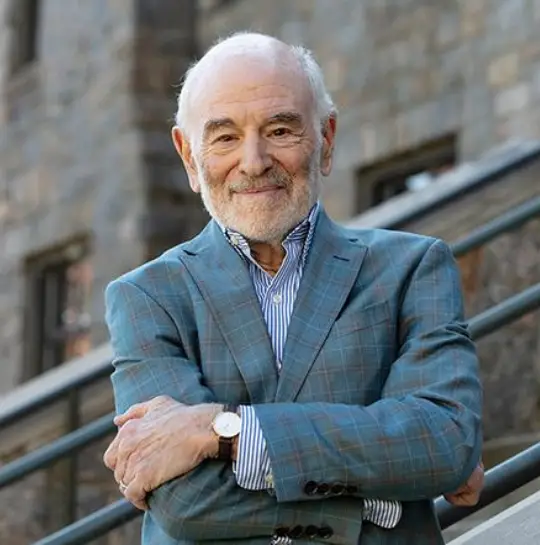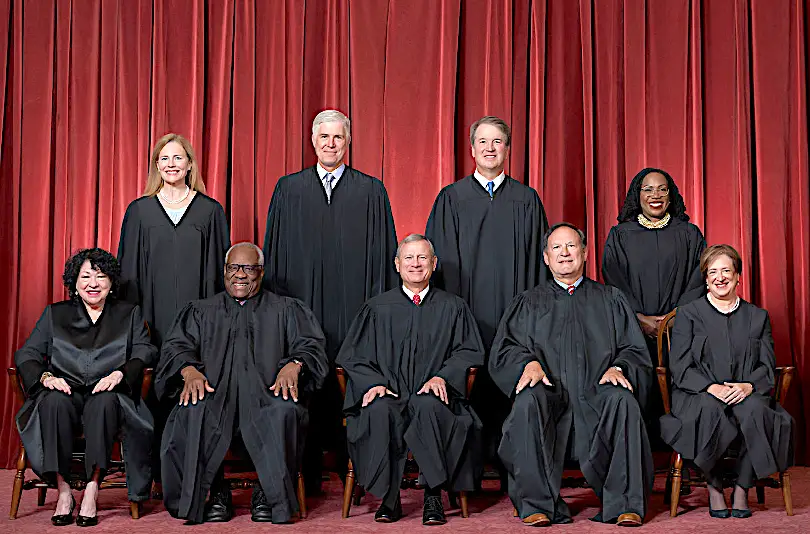Noted Westchester law professor delves into the Supreme Court ruling on presidential immunity
“The court is trying to say, ‘we’re not talking about Trump, we’re talking about a future president,’ which I think is baloney but that’s what they said in their opinion,” University Distinguished Professor Bennett L. Gershman of Pace University’s Elisabeth Haub School of Law told the Business Journal.
Gershman was commenting on the U.S. Supreme Court’s decision revealed on July 1 that presidents have absolute immunity from prosecution for core official acts and implied immunity for everything else except clearly demonstrable personal acts. The court was ruling in the Donald Trump Jan. 6 attempted coup case brought by Special Prosecutor Jack Smith. Trump’s attorneys claimed that the case should be thrown out because Trump had absolute immunity from prosecution. The court ruled that Trump was, indeed, immune from prosecution for trying to pressure Vice President Pence into not counting Electoral College results that gave the election to Joe Biden and that Trump was immune from prosecution for anything he told his Department of Justice to do. The court also sent the case back down to Federal Judge Tanya Chutkan to decide which allegations brought by Smith against Trump were for personal acts and still can be prosecuted.

Gershman has been a professor of law at Pace since its law school was founded in 1976. He has been a visiting professor at Cornell Law School and Syracuse Law School. Gershman was a prosecutor in the New York State Anti-Corruption Office, has written four books, more than 75 articles for law journals, and hundreds of book reviews, essays, and op-ed pieces.
“The breadth of the opinion was stunning to me,” Gershman said. “They pretty much said it’s conceivable everything Trump was doing was presumptively immune from criminal prosecution. It’s almost like you could justify anything that the president does, since you can’t go into motives, you could probably make an argument that any action that a person takes as president is an official action.”
The Supreme Court voted 6-3 in its ruling on Trump’s claims of presidential immunity with the conservative justices in the majority. The majority decision was written by Chief Justice John Roberts and said that a prosecutor cannot consider the motives for a presidential act when trying to classify it as criminal and bring criminal charges.

“They are giving a huge berth to how they see the president under the Constitution. They talk about ‘core authority’ in the Constitution, but that to me is so vague,” Gershman said. “Clearly nobody in our country in a criminal case can say, ‘you can’t look at my motive, I can kill somebody but you can’t look at my motive for killing the person, what I do is within my professional activity whether it’s a doctor, mechanic, and you can’t look at anything I do in my professional capacity.'”
Gershman said that what the Supreme Court has said in its decision is that very likely the president is above what he described as normal law including murder, bribery and calling out the military to stage a coup.
“I’m making up these crazy hypotheticals but nobody else can do this, nobody else can get immunity for criminality, very rank clear criminality, but the president gets immunity for it,” Gershman said. “It seems to me that what they’ve done is place the president on a pedestal. The president has so much authority to do things that for a normal person would be a crime. The president gets immunity. No one else gets that kind of immunity.”
Gershman said that inciting a mob to go to the Capitol, making up fraudulent Electoral College delegates so they can replace the real delegates, telling the vice president not to certify the election “is clearly beyond the pale and clearly unlawful and the subject of criminal allegations. But, the court seems to be giving so much indulgence.”
President Biden, speaking from the White House a few hours after the court’s decision was released, declared that there now are virtually no limits on what a president can do. Biden pledged to follow the law and respect the limits of presidential power.
Donald Trump, on the other hand, posted online a message in all capital letters: “BIG WIN FOR OUR CONSTITUTION AND DEMOCRACY. PROUD TO BE AN AMERICAN!”
New York’s Gov. Kathy Hochul said in a statement, “Donald Trump is a convicted felon who is running for president to shield himself from the rule of law. In a devastating blow to our legal system and democracy, Trump’s handpicked Supreme Court granted him his greatest wish.”
Senate Majority Leader Chuck Schumer of New York said, “This is a sad day for America and a sad day for our democracy. The very basis of our judicial system is that no one is above the law. Treason or incitement of an insurrection should not be considered a core constitutional power afforded to a president.”
Republican Rep. Elise Stefanik of New York said, “Today’s Supreme Court decision is a historic victory for President Donald Trump, the Constitution, the rule of law, and the American people. The President of the United States must have immunity, like Members of Congress and federal judges, which is necessary for any presidency to function properly.”
New York Democratic Rep. Alexandria Ocasio-Cortez said she will file articles of impeachment to remove corrupt Supreme Court justices when the House returns from its July 4 break, but did not name the justices she’d try to have removed. Presumably they would be the six conservative justices.
“The Supreme Court has become consumed by a corruption crisis beyond its control. Today’s ruling represents an assault on American democracy. It is up to Congress to defend our nation from this authoritarian capture,” Ocasio-Cortez said.
In the dissent she wrote and voiced from the bench that was joined by her fellow liberal Justices Kagan and Jackson, Justice Sonia Sotomayor said, “The damage has been done. The relationship between the president and the people he serves has shifted irrevocably. In every use of official power, the president is now a king above the law.”